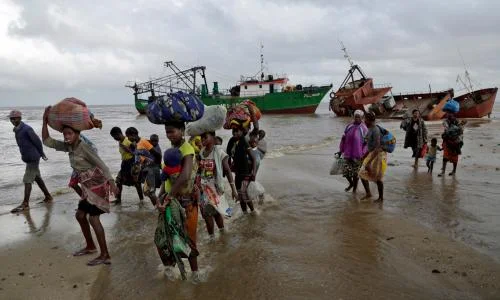Experts behind a Lancet Countdown report have said that the 65 million people living in the world’s small island nations face “catastrophe” from the health impacts of climate breakdown.
Heatwaves, drought, insect-borne diseases and extreme weather are getting worse because of the climate crisis, putting lives and livelihoods at risk, found the report, the first comprehensive analysis of the state of climate change and health in island states.
the Lancet Countdown Centre for Small Island Developing States said that more than a million people living in low-lying areas of small island developing states (Sids) in the Pacific, Caribbean, Atlantic, Indian Ocean and South China Sea regions are likely to be displaced as sea levels rise.
It also warned of increasing food insecurity as the marine environment is destabilised, driving higher rates of chronic health problems such as diabetes and obesity.
Read also: Study finds Britain leads the world in cracking down on climate activism
Tackling the problem “requires international action from high-income countries to reduce greenhouse gas emissions”, the centre said in its report, published in the Lancet Global Health, noting that Sids themselves collectively have low emissions.
“One of the main challenges is heat,” said the centre’s director, Georgiana Gordon-Strachan, based at the University of the West Indies, who led the team of 35 authors. “It affects health physiologically, but it also affects the marine environment, which is a big part of the Sids culture [and] diet; it affects extreme weather events, because once the oceans are warm, that heat energy feeds into more monster storms and storms that develop very, very quickly.”
Heat also affects labour capacity, with people able to work safely for fewer hours outside, she said. The report found that 4.4bn work hours were potentially lost due to extreme heat in 2023 across the states – 71% more than the average between 1991 and 2000.
The islands are facing “an exacerbation of an already dire situation” said Gordon-Strachan, “where heat is becoming more intense and all the ramifications of a warming world are affecting us in a serious way, from extreme events to loss of homes, loss of lives and livelihoods”.
Story was adapted from the Guardian.
